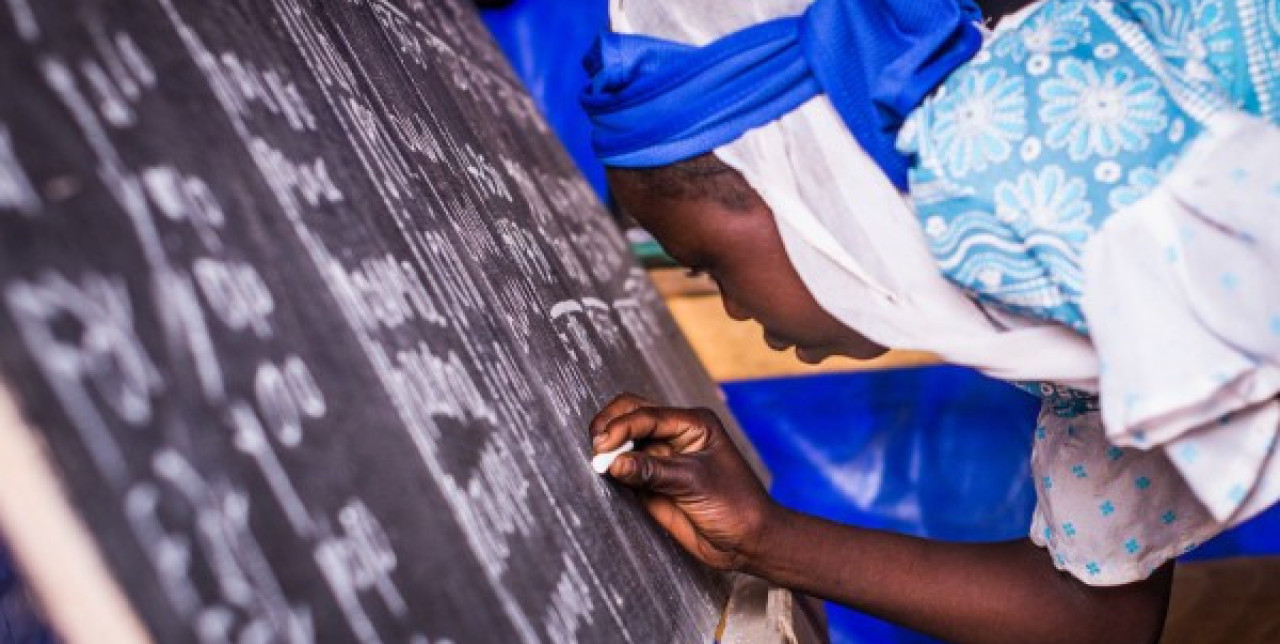31-08-2017 | di COOPI
Education as an engine for development
Niger- a country in extreme conditions of poverty- has been suffering for years from unstoppable natural phenomena such as droughts and frequent floods. The humanitarian emergency got even worse in 2015, when massive groups of refugees and displaced persons from Nigeria and from Niger itself moved into the country to flee attacks by extremist group Boko Haram.
Insecurity and uncertainty have a negative impact on the educational sector as well, depriving children and adolescents of one of their fundamental rights: being able to study. 151 schools located on the southern border between Niger and Nigeria have been shut down since 2015 due to being deemed unsafe.
The situation is particularly critical in the Diffa Region, across the south-eastern border, already sporting the lowest schooling rate in the whole country: it is estimated that 65% of the students attending primary schools drop out of the school system.
It is in this Region that, since July 2017 , COOPI has been carrying out an intervention aimed to increase the access to formal and non-formal quality education for school-age minors in the hosting villages and in the displaced communities located in the areas hit by Boko Haram violence.
Thanks to the financing provided by AICS (the Italian Agency for Development Cooperation), the project aims to ensure for ten months education for children and adolescents up to 18 years of age in emergency contexts, providing them with a protected and safe environment, a variety of school classes and the tools needed for learning.
A 360-degree training
In the context of formal education, the project carries out a two-fold purpose: equipping 20 emergency classrooms and supporting 10 existing primary schools. New classes will be built with the support of Management Commitees and of Educator Mothers Association, as required by law of the Nigerien State. Together, they will provide manuals and school kits to students and teachers alike. The latter will also receive pedagogical training, particularly on how to teach in an emergency context and on how to provide adequate psychosocial support to those children who are most in need due to the traumatic events experienced. Teachers will also be trained on topics related to the promotion of hood hygiene practices, on sexual education and on the protection of minors, particularly of girls.
Concerning help to existing classes, the project not only aims to train teachers, but also to create vegetable gardens for didactic purposes- a way to teach students the basics of agricultural techniques and to provide them with knowledge on correct health and nutrition. Gardens are conceived as a space where children’s parents can farm their own products and sell them, so that this way they can also contribute to school expenses of their children. Supported by an agronomist, students, teachers and parents can acquire greater awareness on the seeds they use, on timings and sowing processes, as well as on the nutritional properties of their own crops.
School as a preparation for life
In non-formal education, the project carries out the building of five literacy centres, the distribution of related school kits and the training of teachers in the same subjects expected for formal education. These classes will also benefit from professional training courses for 20 young students, of whom 5 handicapped. Student training includes an internship to be held in out welding and sewing ateliers, located in Diffa. Lastly, the project will carry out the teaching of subjects not included in regular school programs, such as active citizenship and the promotion of human rights.

Sport will cover an important role in formal and non-formal education alike. Each class will be endowed with a field for sport activities, deemed to be fundamental for the promotion of positive values such as respect and solidarity, but also to encourage students to not drop out of education.




 Niger
Niger